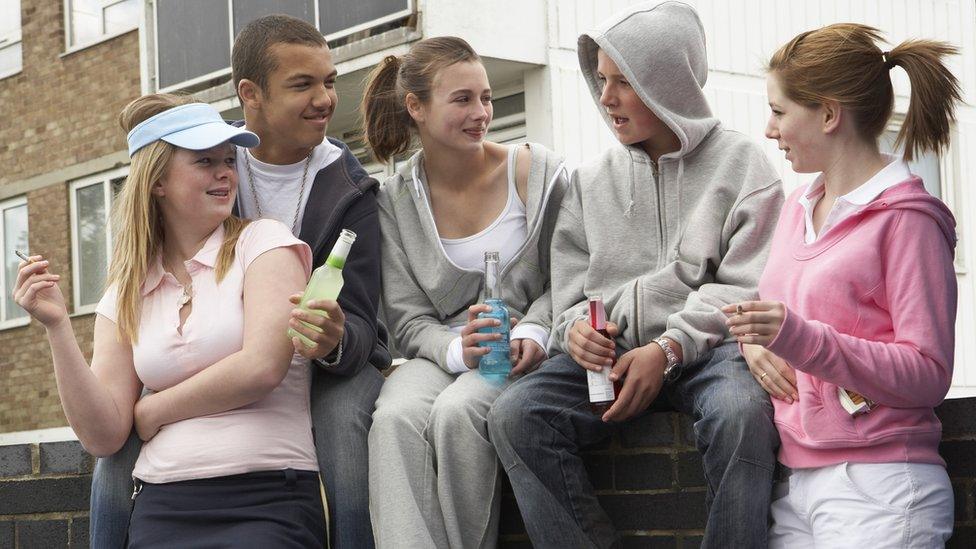'Dramatic' drop in teenage alcohol consumption in Scotland
- Published
- comments
If a night out is boring it's because you're with boring people, says non-drinker Allan Faulds. (Video shot and edited by the BBC's Nick Sheridan)
Teenage drinking in Scotland has dropped "dramatically" in the last decade, new research has indicated.
A World Health Organisation study led by the University of St Andrews found Scotland's teenagers are consuming far less alcohol than previously.
The drop was the second largest for girls and fourth largest for boys out of 36 European countries surveyed.
But the study warned alcohol consumption remained dangerously high across the continent.
The new WHO report on adolescent alcohol-related behaviour between 2002 and 2014 revealed that since 2002, weekly drinking among 15-year-olds in Scotland has declined from 41% to 11% in girls and from 41% to 14% among boys.
'Change is possible'
Dr Jo Inchley from the University of St Andrews was the lead editor.
She said: "Overall, reductions in harmful drinking have been greatest in countries that traditionally have had higher prevalence, such as Great Britain and the Nordic region.
"This makes it clear that change is possible; however, more should be done to ensure that adolescents are effectively protected from the harms caused by alcohol."
The report identified a number of possible reasons for the declines in alcohol consumption.
These included changes in household income, marketing and prevention approaches, as well as shifts in adult norms and teen culture.
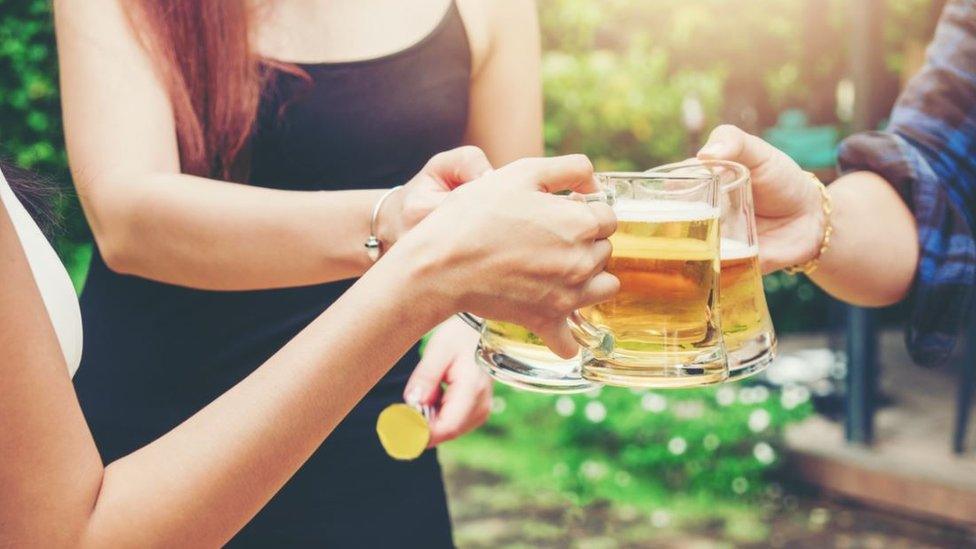
Boys in Scotland were most likely to report drinking beer weekly, while girls were most likely to drink spirits
Dr Inchley added: "Studies have shown that young people who are exposed to alcohol marketing are more likely to start drinking at an earlier age and to drink more.
"We therefore need to implement stricter policies to restrict advertising to young people, alongside other measures which have been shown to be effective, such as taxation, minimum pricing and enforcing age restrictions on the sale of alcohol."
The report found that boys in Scotland were most likely to report drinking beer (on a weekly basis) at 9%, while girls were most likely to drink spirits at 7% of those surveyed.
The data used in the study comes from the Health Behaviour in School-aged Children (HBSC) study which has collected information on Scottish young people's health and wellbeing every four years since 1990.
Consumption of spirits by girls in Scotland also dropped significantly from 37% in 2002 to 7% in 2014 and in boys from 26% to 5%.
The report, conducted by a team of European researchers, also showed that a third of Scottish girls and boys have been drunk twice or more in their lifetime - down from around 50% in 2002 but still placing Scotland in the top 10 in Europe.
More than a quarter of girls in Scotland (27%) and almost a third of boys (30%) started drinking alcohol at age 13 or younger.
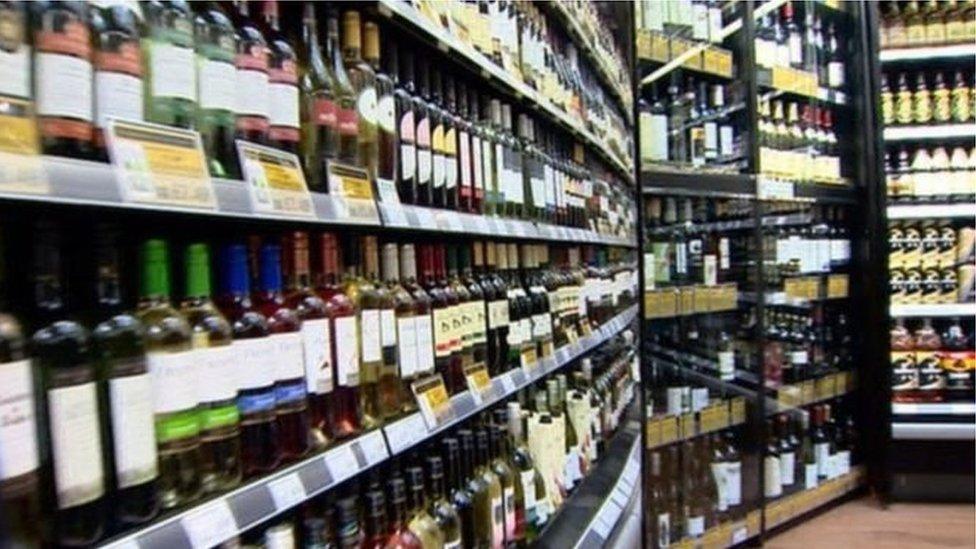
Studies found young people who are exposed to alcohol marketing are more likely to start drinking at an earlier age
Across Europe, Great Britain and Ireland have seen the largest drops in teenage drinking since the study began in 2002.
Now the highest prevalence of regular teenage drinking is found in Southern Mediterranean countries and Central Eastern Europe.
Across the 36 European countries studied in the report, more than one in 10 adolescents were regular weekly drinkers by the age of 15.
- Published22 June 2018
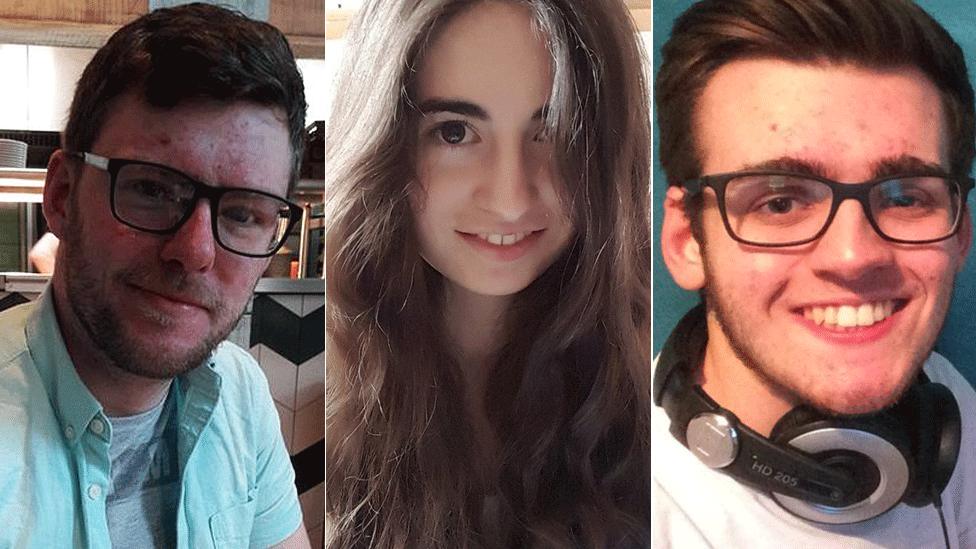
- Published15 December 2017
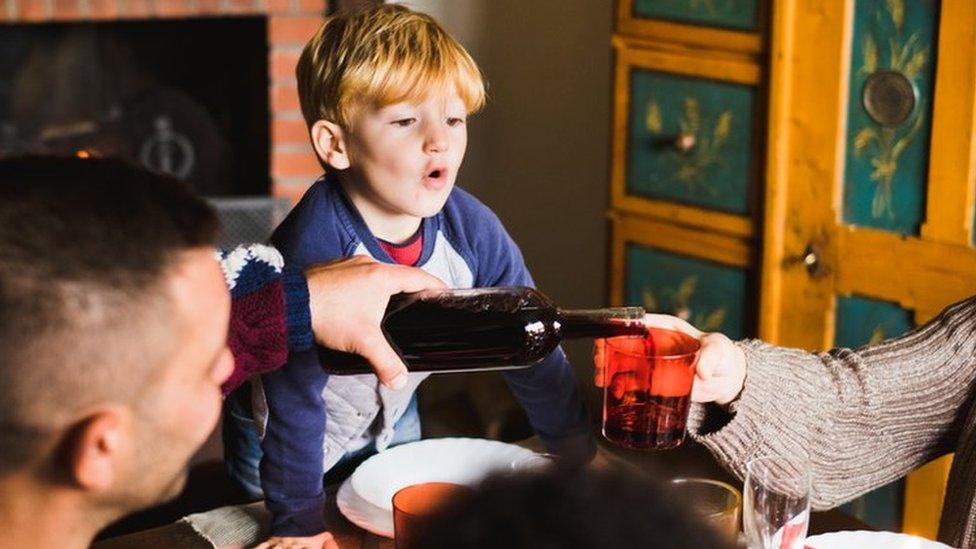
- Published29 August 2018
